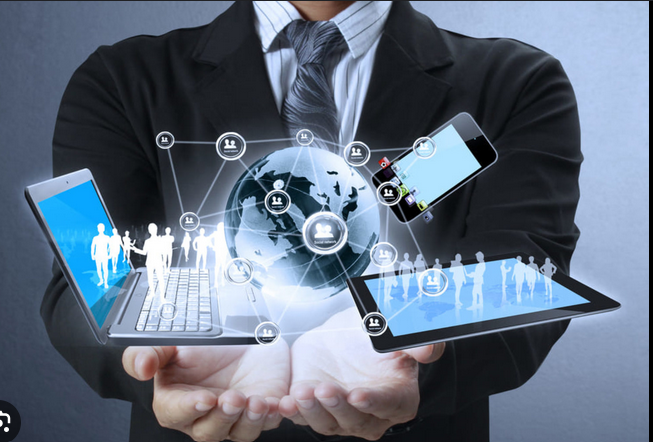By Felicia Nwosu
A new wave of technological breakthroughs is poised to reshape global industries, society, and daily lives, according to IPSOS’ “Predictions 2025” report. The report, which surveyed over 23,000 individuals from 33 countries, highlights that advancements in artificial intelligence, connectivity, data security, and immersive technologies will significantly impact business operations, consumer behaviors, and governmental strategies in an increasingly digital world.
The report further said that artificial intelligence (AI) continues to expand its reach, becoming a crucial tool for optimizing processes across industries. AI-powered systems that can understand natural language, interpret images, and predict outcomes are not only enhancing decision-making but are also automating complex tasks.
IPSOS pointed out that as machine learning advances, its applications in areas like predictive analytics, healthcare, and logistics are growing rapidly. The automation of mundane tasks, according to IPSOS, is freeing up human resources to focus on higher-level decision-making, driving efficiency across various sectors.
According to IPSOS, connectivity remains a key driver of technological evolution. The ongoing rollout of next-generation infrastructure, including 5G networks, is making it possible to communicate instantly and securely between devices. IPSOS noted that this enhanced connectivity is laying the foundation for smarter cities, with developments in transportation, urban planning, and public services that integrate real-time data for greater efficiency.
The report predicts that these innovations will transform how people live and work, ensuring that smart cities are becoming a reality rather than a distant concept, while emphasising that the increasing importance of data security as digital transformation accelerates. It highlighted the growing efforts to strengthen cybersecurity, including the implementation of zero-trust architectures, which assume no user or device is inherently trustworthy.
Additionally, the research body noted that artificial intelligence is playing a critical role in detecting and neutralizing cyber threats in real time. Given the rising sophistication of cyberattacks, the report stated that these advancements are essential to safeguarding digital assets and personal information.
IPSOS also stated that the realm of computing is also undergoing a dramatic shift. Innovations such as server-less computing, Kubernetes, and containerization are streamlining the way applications are developed and deployed. These technologies enable businesses to scale efficiently and deploy services faster, which it considers crucial in today’s fast-paced market environment. The report further emphasized that integrating security into every step of the development process, known as DevSecOps, ensures that digital solutions remain both secure and compliant amid growing cybersecurity threats.
Blockchain technology, traditionally linked to cryptocurrency, is expanding into new areas like supply chain management and identity verification, IPSOS reported. The technology’s ability to provide transparent and secure transaction tracking is improving accountability and efficiency in industries ranging from manufacturing to finance.
The notable body predicts that blockchain will be a key enabler of the digital transformation of industries globally, helping to streamline operations and increase transparency.
Extended Reality (XR) technologies, including virtual reality (VR) and augmented reality (AR), are expected to revolutionize how people interact with the world, according to IPSOS.
The report pointed out that these immersive technologies are already transforming sectors such as education, healthcare, and entertainment, creating engaging and interactive environments for learning, training, and entertainment. IPSOS also noted that mixed reality (MR) technologies, which blend elements of the digital and physical worlds, are creating new ways for people to collaborate, problem-solve, and engage in professional development.
It stated that the future of technology is also deeply connected to advances in quantum computing and nanotechnology, adding that, Quantum computers, which harness the principles of quantum mechanics to perform calculations far beyond traditional computers, are opening up new possibilities in fields like cryptography, materials science, and artificial intelligence.
Highlighting that breakthroughs in nanotechnology are enabling the development of materials and devices at the atomic scale, while paving the way for innovations in areas such as drug delivery systems and energy storage solutions.
IPSOS’ “Predictions 2025” report concludes that these technological trends are essential in shaping the future of global economies, workplaces, and societies. The report emphasized that as these technologies continue to evolve, they will fundamentally redefine how industries operate, governments interact with citizens, and consumers engage with brands and services.






Comment
No comments found.